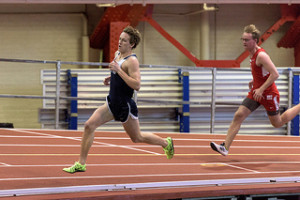 How many times have you promoted your best performers only to see them struggle as a manager or leader? A client recently promoted his top sales person to lead the team and the entire team’s performance went down double digits. Why does this happen and what should you watch for?
How many times have you promoted your best performers only to see them struggle as a manager or leader? A client recently promoted his top sales person to lead the team and the entire team’s performance went down double digits. Why does this happen and what should you watch for?
A recent piece from Fast Company highlights 5 common reasons this phenomenon happens:
- Lack of leadership skills
- They are not team leaders
- Lack of engagement
- They get bored easily
- Personal vs. team goals
The first assumption we make is that good performers are good leaders, when in fact leadership skills are important, but undervalued on a regular basis. It would be like making the assumption that a top car mechanic can also run the kitchen. They are not related at all. As I mentioned in my blog, “Can Leadership Be Learned?” I believe you must have some natural talent at it and then learn the best practices that make a good leader. If a performer has not volunteered to run a project, or to engage other teammates, they might not be a good leader, nor have any interest in it.
We are taught to “get ahead” and that means moving up the ladder in an organization and at some point that involves managing others. However, we are rarely given any instruction as to what that looks like, what good leadership is, or how to do it well.
The next reason that top performers aren’t necessarily your best leaders is a “lack of engagement.” We assume that because they do well, they are engaged. A recent study showed that a full 42% of top performers were unengaged. And not only that, but they did not feel supported by management and were looking for other opportunities.
There is also the reality that top performers get bored easily. They like new challenges and trying new things, leading, and in particular managing, can be tedious and if someone on their team is not learning quickly enough for them, they will get impatient and bored with the whole process. These types of performers assume that everyone is as smart as they are and should be equally capable of producing results. The have little tolerance for differences in strengths and skill sets and get bored dealing with others that are not like them.
The last reason cited is top performers are more focused on personal goals than team goals. It’s easier to get there by yourself, much harder as a group.
A true leader has all of the above missing characteristics, and sometimes they are top performers, but more often they aren’t. They are your good performers who are team players and have a knack for listening, coaching, mentoring and crossing the finish line together. They are not the top performers who are really solo artists who never look to see who is behind them.
photo credit: Indoor Track – New York – Ivy Prep League, Meet 4 via photopin (license)
